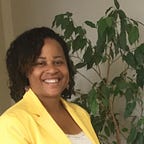The First 100 Days: Why Every Teacher Deserves A Coach
The decisions of school leaders will greatly impact how the 2021–22 academic year unfolds, particularly for teachers. While teachers have the duty to support students, school leaders priority should be the well-being and professional support teachers will need. Whether a teacher has been teaching for 20 years of 2 years, every teacher in the classroom during the 2021–22 academic year should have a coach. This is not optional for school leaders who ground their practice in social justice. Without support, students and families are sure to bear the brunt of teachers’ grief, fatigue, and fear of returning to in-person learning after 18 months of juggling the unexpected.
Why Coaching Matters
Research on cognitive coaching has demonstrated that teachers who receive coaching are able to identify novel solutions, enact flexibility, and prioritize equitable teaching. Cognitive coaching is grounded in the premise that “how teachers think and act — how they reflect before, during, and after instruction — makes all the difference.” Robust reflection and dialogue is aided by a coach who is able to enhance educators’ decision making — to help teachers modify their own practice. Teachers who are able to enact such reflection have been shown to “empathize… elicit more conceptual responses from students and produce higher achieving students who are more cooperative and involved in their work.” In these unprecedented times, coaching is vital if schools are going to reach students where they are and engage in asset-based teaching — versus remediation, which has shown to widen the opportunity gap amongst students.
Not Just for Novice Teachers
Coaching is often considered a tool most appropriate for novice teachers, yet this is simply not true. Veteran teachers — especially those noted for excellent teaching — benefit from the collaboration embedded within coaching. I know first hand the impact of coaching. I had been out of the classroom for 4 years when I returned to teach a double-block of Freshman English in an area that had been historically underserved. The administration at the high school were confident in my abilities, as was I, yet a month into the year things were tense. I was missing an important aspect within my teaching practice, however because everyone on campus thought “I had it handled” it was challenging to identify a collaborator to make the changes necessary.
Luckily after giving a presentation for the Bay Area Writing Project, Cherise McBride, a veteran teacher on maternity leave asked if she could visit my classroom. Cherise would end up visiting three times over the next month. At the same time, a former boss from a non-profit that I had consulted for reached out to ask if I needed anything now that I was back in the classroom. My response came out as a blurt: “Can you pay for Cherise to support me in teaching?” Without hesitation the answer was yes and for the rest of the year, Cherise was a collaborator, teaching partner and coach.
The first breakthrough came after a tough day of teaching. I sat with Cherise in the teacher’s lounge and complained. She was comforting and clear as she stated, “What is it you hope to gain by yelling when students are not engaged?” The question landed hard. It was true. In my rustiness, I had resorted to discipline and punish, rather than collaboration and understanding. Cherise helped me to name the blind spot, the collaborative nature of teaching that I knew was missing but couldn’t name.
From that day forward, Cherise’s clarifying questions pushed me to move beyond reminiscing of what my teaching practice used to be. She helped me respond to the present context and to leverage the assets of my students. Cherise taught the lessons that were not in my skillset and shared in the celebration of students’ learning. Having a coach that year improved my practice and students’ perception of their own assets. Students who had questioned their own potential began to name new learning goals and support peers in naming theirs as well. The year culminated with students traveling to a community exhibit in Marin to present their multimodal projects.
I gained new teaching skills that year and over the next couple of years. Cherise (now Dr. McBride) and I continued to learn with and from each other over the next 5 years.
The First 100 Days For Teachers
Educational scholars have shared their perspectives of what every student needs in the first 100 days. The comments center relationships and students’ needs, as they should. What also should be a priority the support teachers will need to provide an equitable learning environment. In the first 100 days teachers deserve and need coaching. Coaching, that is not focused on evaluation or test scores — or used as teacher lounge fodder. Coaching that supports teachers in “developing faith in their own ability to make effective judgements based on the entirety of their capabilities and experiences.”
Costa, A., Garmston, R., & Zimmerman, D. (2014). Cognitive Capital: Investing in teacher quality.
Lanette Jimerson, Ph. D., is a Bay Area native, writer, and scholar.
